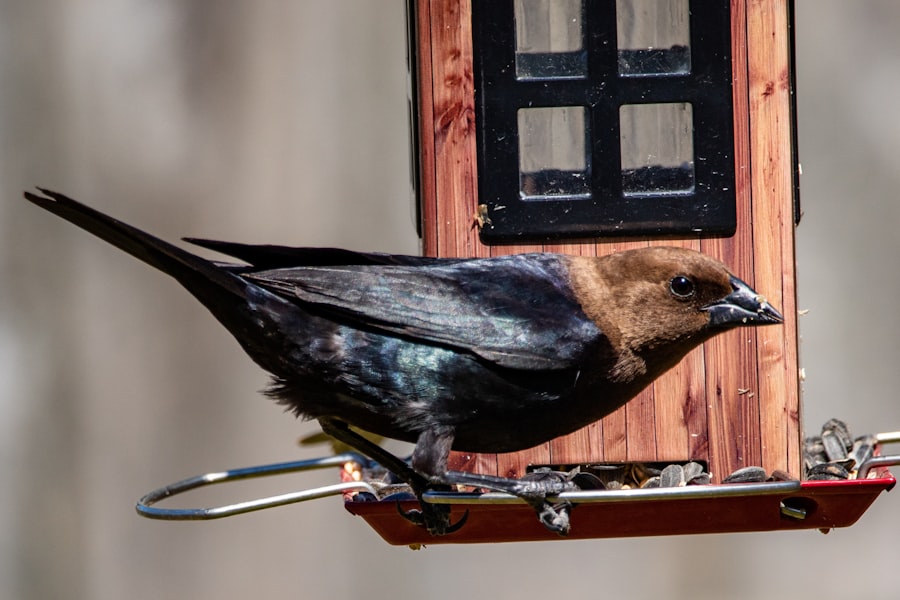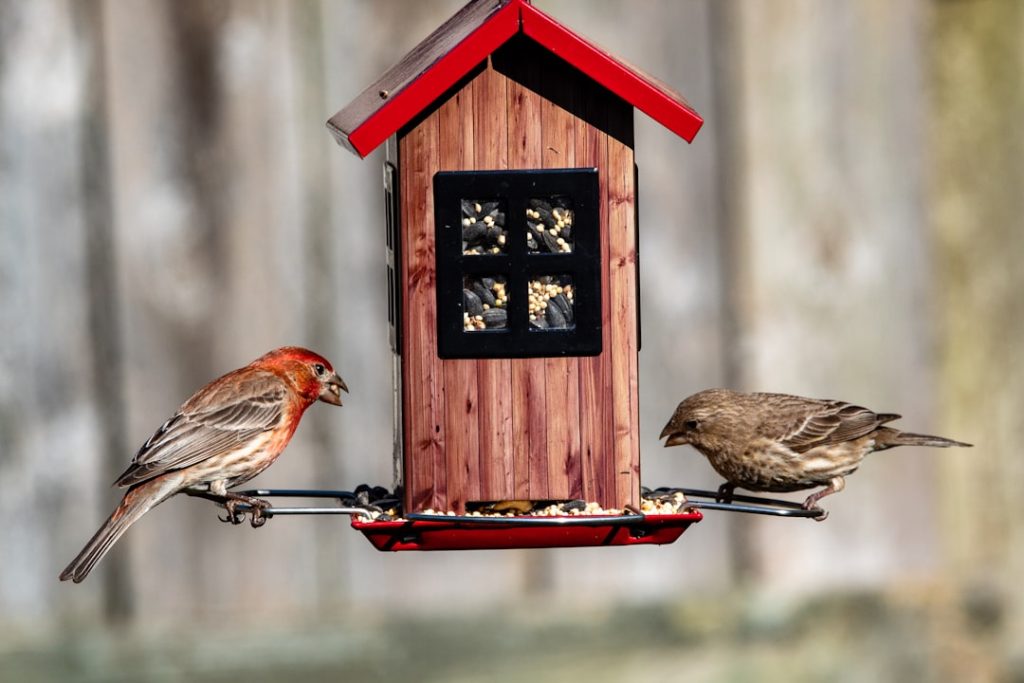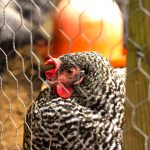Keeping chickens as pets has gained popularity in recent years, driven by a growing interest in sustainable living and self-sufficiency. Chickens offer multiple benefits, including fresh egg production and companionship. They can adapt to various environments, from rural to urban settings, and are generally low-maintenance pets.
However, potential owners should be aware of the responsibilities associated with chicken care. Chickens are social animals that perform best in small groups of at least three to four birds. They possess a high level of intelligence and can be trained to recognize their names and perform basic tasks.
Known for their gentle temperament, chickens can be suitable pets for families with children. The average lifespan of a chicken is 8-10 years, requiring a long-term commitment from their caretakers. Raising chickens as pets can be a fulfilling experience, providing both practical benefits and emotional satisfaction.
They offer a sustainable source of fresh eggs while also serving as engaging and affectionate companions. With proper care and attention, chickens can become valuable members of a household, contributing to a more self-sufficient lifestyle.
Table of Contents
- 1 Housing and Space Requirements for Chickens
- 2 Feeding and Nutrition for Chickens
- 3 Health and Veterinary Care for Chickens
- 4 Daily Care and Maintenance for Chickens
- 5 Socialization and Interaction with Chickens
- 6 Considerations for Keeping Chickens as Pets
- 7 FAQs
- 7.1 What are the basic requirements for keeping chickens as pets?
- 7.2 What do chickens eat and how often do they need to be fed?
- 7.3 What kind of housing do chickens need?
- 7.4 What are the main health concerns when keeping chickens as pets?
- 7.5 Are there any legal restrictions or regulations for keeping chickens as pets?
- 7.6 Do chickens require a lot of time and attention as pets?
Key Takeaways
- Keeping chickens as pets can be a rewarding experience, providing fresh eggs and entertainment.
- Chickens require a secure and spacious coop with access to outdoor space for exercise and foraging.
- A balanced diet for chickens includes a mix of commercial feed, grains, and fresh greens.
- Regular health check-ups and vaccinations are essential for keeping chickens healthy.
- Daily care for chickens involves cleaning the coop, providing fresh water and food, and monitoring for any signs of illness.
Housing and Space Requirements for Chickens
Coop Size and Space Requirements
When it comes to housing chickens, providing a safe and comfortable coop is essential for their well-being. The size of the coop will depend on the number of chickens you plan to keep, but as a general rule of thumb, each chicken should have at least 2-3 square feet of space inside the coop. Additionally, they should have access to an outdoor run or free-range area where they can roam and forage during the day.
Coop Design and Features
The coop should be well-ventilated and provide protection from predators, such as raccoons, foxes, and birds of prey. It’s also important to keep the coop clean and dry to prevent the spread of diseases and parasites. In terms of nesting boxes, there should be one box for every 3-4 hens, and they should be filled with clean bedding material, such as straw or wood shavings.
Climate Considerations
When designing a chicken coop, it’s important to consider the climate and weather conditions in your area. In colder climates, the coop should be insulated and equipped with a heat source during the winter months. In warmer climates, the coop should have adequate shade and ventilation to prevent overheating.
Overall Importance of a Safe and Secure Environment
Overall, providing a spacious and secure living environment is crucial for the health and happiness of your pet chickens.
Feeding and Nutrition for Chickens

Proper nutrition is essential for the health and well-being of pet chickens. A balanced diet will not only ensure that they lay high-quality eggs but also support their overall health and vitality. A good quality commercial chicken feed is a great foundation for their diet, as it contains essential nutrients such as protein, vitamins, and minerals.
There are different types of chicken feed available, including starter feed for young chicks, grower feed for adolescent chickens, and layer feed for mature hens. It’s important to provide the appropriate feed for each stage of their development to support their growth and egg production. In addition to commercial feed, chickens also enjoy a variety of treats and supplements, such as fruits, vegetables, mealworms, and crushed oyster shells.
These treats not only provide additional nutrients but also serve as enrichment for the chickens, keeping them mentally stimulated and happy. It’s important to provide access to fresh water at all times, as chickens can quickly become dehydrated, especially during hot weather. Additionally, it’s important to monitor their food intake and adjust their diet as needed based on their activity level, age, and overall health.
By providing a balanced and nutritious diet, you can ensure that your pet chickens lead healthy and fulfilling lives.
Health and Veterinary Care for Chickens
Just like any other pet, chickens require regular health care to prevent illness and maintain their well-being. It’s important to monitor your chickens daily for any signs of illness or injury, such as changes in behavior, decreased appetite, or abnormal droppings. Regular health checks can help you identify potential issues early on and seek veterinary care if necessary.
Finding a veterinarian who specializes in poultry care is important for ensuring that your chickens receive proper medical attention when needed. In addition to regular check-ups, it’s important to practice good hygiene and sanitation in the chicken coop to prevent the spread of diseases and parasites. This includes regularly cleaning the coop, providing clean bedding material, and keeping food and water sources free from contamination.
Additionally, it’s important to provide regular parasite control, such as deworming treatments and pest control measures to protect your chickens from external parasites like mites and lice. It’s also important to be prepared for emergencies by having a first aid kit on hand with essential supplies such as bandages, antiseptic solution, and wound care products. By being proactive about their health care needs, you can ensure that your pet chickens live long and healthy lives.
Daily Care and Maintenance for Chickens
Caring for pet chickens requires daily attention to ensure that their basic needs are met. This includes providing fresh food and water daily, as well as cleaning the coop to maintain a healthy living environment. Chickens produce waste regularly, so it’s important to remove soiled bedding material from the coop and replace it with fresh bedding to prevent the build-up of bacteria and odors.
Additionally, it’s important to monitor their behavior and overall well-being on a daily basis. This includes observing their eating habits, activity level, and social interactions with other flock members. Regular interaction with your chickens can help you build a strong bond with them and identify any changes in their behavior or health early on.
Chickens also require regular grooming to maintain their feathers and overall cleanliness. This includes checking for any signs of mites or lice on their skin and feathers, as well as trimming their nails if needed. By providing daily care and attention to your pet chickens, you can ensure that they lead happy and healthy lives.

Building a Bond through Human Interaction
Chickens enjoy being talked to and will often respond with clucks and chirps in return. They also enjoy being hand-fed treats and will quickly learn to recognize their human caregivers.
In addition to human interaction, chickens also benefit from socializing with other flock members. They establish a pecking order within the flock through social interactions such as grooming each other, sharing food, and engaging in playful behaviors. Providing opportunities for socialization within the flock can help reduce stress and aggression among the chickens.
Creating a Stimulating Environment
It’s important to provide a stimulating environment for your pet chickens by offering toys and enrichment activities such as hanging treats or setting up a dust bath area for them to enjoy. By providing opportunities for socialization and interaction with both humans and other chickens, you can ensure that your pet chickens lead fulfilling lives.
Considerations for Keeping Chickens as Pets
Before bringing chickens into your home as pets, there are several important considerations to keep in mind. First and foremost, it’s important to check local zoning laws and regulations regarding keeping chickens in your area. Some neighborhoods may have restrictions on the number of chickens allowed or specific guidelines for coop placement.
It’s also important to consider the time commitment involved in caring for pet chickens. While they are relatively low-maintenance animals compared to other pets, they still require daily care and attention to ensure their well-being. Additionally, it’s important to consider the long-term commitment of caring for chickens, as they can live for up to 8-10 years.
Another consideration is the cost involved in keeping pet chickens. This includes initial setup costs for building a coop and purchasing supplies, as well as ongoing expenses for feed, bedding material, veterinary care, and other necessities. Finally, it’s important to consider the impact of keeping chickens on your lifestyle and daily routine.
Chickens require daily care and maintenance, so it’s important to ensure that you have the time and resources available to meet their needs. Overall, keeping chickens as pets can be a rewarding experience that provides fresh eggs, companionship, and entertainment. By considering these important factors before bringing chickens into your home, you can ensure that you are prepared to provide a loving and nurturing environment for your pet chickens.
If you’re considering keeping chickens as pets, you may also be interested in learning about the best ways to care for them. One helpful article to check out is “The Chicken Coop Country Diner” on PoultryWizard.com, which offers tips on creating a comfortable and functional living space for your feathered friends. This article provides valuable insights into the importance of a well-designed coop for the health and happiness of your chickens. (source)
FAQs
What are the basic requirements for keeping chickens as pets?
Chickens require a secure and spacious coop, access to fresh water and food, and protection from predators. They also need space to roam and scratch, as well as a dust bath area.
What do chickens eat and how often do they need to be fed?
Chickens eat a diet of grains, seeds, fruits, and vegetables. They also require access to grit and calcium for digestion. They should be fed once or twice a day, depending on their age and breed.
What kind of housing do chickens need?
Chickens need a well-ventilated and predator-proof coop with nesting boxes for laying eggs. The coop should also have perches for roosting and a secure outdoor run for exercise.
What are the main health concerns when keeping chickens as pets?
Common health concerns for chickens include parasites, respiratory infections, and egg-laying issues. Regular health checks, proper nutrition, and a clean living environment can help prevent these issues.
Are there any legal restrictions or regulations for keeping chickens as pets?
Many cities and towns have regulations regarding the number of chickens allowed, coop size, and distance from neighboring properties. It’s important to check local ordinances before keeping chickens as pets.
Do chickens require a lot of time and attention as pets?
Chickens require daily care, including feeding, watering, and cleaning their living space. They also need regular health checks and attention to their social needs. However, they are relatively low-maintenance compared to other pets.
Meet Walter, the feathered-friend fanatic of Florida! Nestled in the sunshine state, Walter struts through life with his feathered companions, clucking his way to happiness. With a coop that’s fancier than a five-star hotel, he’s the Don Juan of the chicken world. When he’s not teaching his hens to do the cha-cha, you’ll find him in a heated debate with his prized rooster, Sir Clucks-a-Lot. Walter’s poultry passion is no yolk; he’s the sunny-side-up guy you never knew you needed in your flock of friends!







